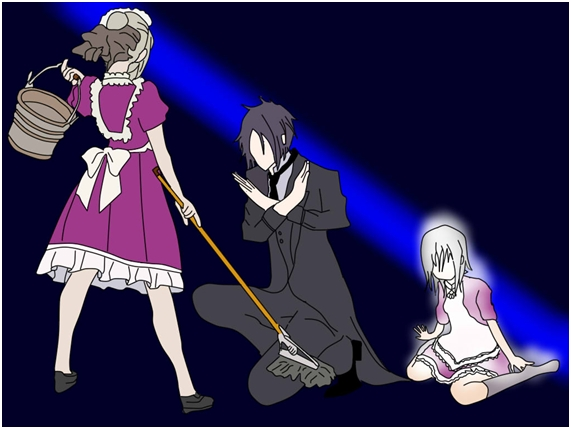『新しいことに飛びつかない』『必要最低限必要なサービスを、これから100年も続ける』という、サウスウエスト航空のポリシーに、古都(京都)の和菓子屋、呉服屋、伝統工芸の精神を垣間みる思いでした。
先日、マイクロソフトのOSを搭載したシステムがクラッシュして、世界中の多くのシステムが数時間から数日間程度、停止をよぎなくされました。
Recently, a system running Microsoft's operating system crashed, forcing many systems worldwide to shut down for a few hours to a few days.
私がニュースで知った範囲では、日本では、多くのマクドナルドの店舗が休業に追い込まれ、そして航空会社も飛行機の運行中止が相次ぎました。
As far as I know from the news, many McDonald's restaurants in Japan have been forced to close, and airlines have also had to cancel flights one after another.
当初、私は、サイバー攻撃を疑ったのですが、それにしては攻撃対象が"???"という感じもしていました。
Initially, I suspected a cyber attack, but the target of the attack seemed "strange" to me.
テロをするのであれば、ファストフードや航空会社のカウンターではなく、「製造工場で毒物を混入させる」か「飛行機を墜落させる」方向で攻撃をするはずです。
If they were going to carry out a terrorist attack, they would have done it in the direction of "poisoning a manufacturing plant" or "crashing a plane," not in the direction of fast food or airline counters.
カウンターやレジなどをシステムダウンさせても、企業や国家は転覆しません。
A company or state will not break down by bringing down the system of counters, cash registers, etc.
テロをやるなら、千人単位の殺害を狙うべきでしょう。
If you are going to commit terrorism, you should aim to kill a thousand people.
-----
結果として、この事件は、テロではなく、CrowdStrike社のソフトウェアアップデートの問題によるWindowsのシステム障害でした。
As it turned out, the incident was not a terrorist attack but a Windows system failure caused by a problem with CrowdStrike's software update.
「CrowdStrikeとMicrosoftのどちらに非があるか」を調べてみたところ、主犯はCrowdStrike社だったようです(マイクロソフトはその「巻き添え」を喰らった)。
I researched whether CrowdStrike or Microsoft was at fault, and it seems that CrowdStrike was the main culprit (Microsoft was the "collateral damage").
CrowdStrike社のソフトウェアアップデートにバグが含まれていて、このアップデートがMicrosoftのWindowsシステムに不具合を引き起こし、広範なシステム障害を引き起こしたようです。
It appears that CrowdStrike's software update contained a bug that caused the update to glitch on Microsoft's Windows system, causing widespread system failures.
-----
ところが、この世界的なWindowsOSによるシステム障害を、完全に免れた会社があります。
However, one company was wholly spared from this worldwide system failure caused by Windows OS.
サウスウエスト航空です(ちなみに、アメリカン航空、デルタ航空、ユナイテッド航空は、モロに被害を受けています)。
Southwest Airlines. (Incidentally, American, Delta, and United Airlines were affected.)
その他、UPSとFedExも被害を免れました。
Other UPS and FedEx also escaped damage.
そして、その理由が凄い。
And the reasons are significant.
―― Windows 3.1という非常に古いオペレーティングシステムを使用していたため
-- Because they were using an ancient operating system, Windows 3.1
この他、国際的な制裁のためにアメリカの高技術企業のサービスを利用できないロシアとイラン、そして、中国国内の航空会社や銀行は、自国のIT自給自足政策の影響でほとんど影響を受けなかったようです。
Other countries that were largely unaffected were Russia and Iran, which cannot access the services of U.S. high-tech companies due to international sanctions, and airlines and banks within China, which appear to have been largely unaffected by their IT self-sufficiency policies.
-----
Windows3.1(1993年) -- あれは、ボコボコ落ちまくっていたそれ以前のWindowsと比較して、安定して使えて、私も好きだったOSの一つです。
Windows 3.1 (1993)—That was one of my favorite OSs because it was more stable and usable than the earlier Windows, which fell apart at the seams.
何が凄いって、Windows 3.1には、標準でTCP/IP通信プロトコルスタックが実装されていなかったのです。Windows 3.1自体は主にグラフィカルユーザーインターフェースの提供に焦点を当てており、ネットワーキング機能は非常に限定的でした。
It is impressive that Windows 3.1 did not implement a standard TCP/IP communication protocol stack; Windows 3.1 focused primarily on providing a graphical user interface and had minimal networking capabilities.
つまり(信じられないかもしれませんが)、Windows3.1は、そのままでは「ネットワーク通信」ができなかったのです。
In other words (believe it or not), Windows 3.1 was incapable of "network communication" as it was.
私たちは、ネットワーク使うために、Microsoft TCP/IP-32やら、 Trumpet WinsockやPC-NFSなどのソフトウェアを自力で組込む必要があったのです(NetBEUIやIPX/SPXプロトコルはあったのですが、そんなもん、知らんですよね)。
We had to integrate Microsoft TCP/IP-32, Trumpet Winsock, PC-NFS, and other software to use the network (NetBEUI and IPX/SPX protocols were available, but you didn't know about them, did you? ).
あの当時、パソコンとは、私たち専門家のみが使える「エリートのツール」だったのです。
At that time, computers were an "elite tool" available only to us professionals.
いい時代でした。
It was a good time.
それはさておき。
Aside from that.
-----
サウスウエスト航空が、Windows3.1を使い続けている、ということが、凄い。
Southwest Airlines continues to use Windows 3.1, which is excellent.
ここまで古いOSでは、サイバー攻撃すらできない ―― インターネット側からの攻撃は勿論、内通者によるシステム破壊も難しいのではないか、と、思います。
With an OS this old, even a cyber attack is not possible -- not to mention an attack from the Internet side, it would be difficult for an insider to destroy the system too, I think.
それ以上に、1993年時のハードウェアをどう確保しているのかの方が、すごく興味深いです。
More than that, I am really more interested in how they secured the hardware in 1993.
仮想化? でも、Dockerコンテナしても、ここ10年くらいの技術ですよね。いやいや、それ以上に、ホストOSに最新のWindowsOS使っていたら、ゲストOSをWindows3.1としても意味ないよね。
Virtualization? However, that technology has been around for the last decade, even with Docker containers. No, no, no. More than that, if you use the latest Windows OS for the host OS, it doesn't make sense to use Windows 3.1 for the guest OS.
-----
まあ、私もITエンジニア端くれですので、このようなレガシーOS戦略を取っている組織については、色々と知っています ―― 守秘義務があって話すことはできませんが。
I'm also an IT engineer on the fringe, so I know a lot about organizations with legacy OS strategies like this—although I can't discuss it due to confidentiality obligations.
『OSのメンテナンスを、マイクロソフトには任せずに、全部自力(自社)でやりきる』という鋼の意思があれば、レガシーOS戦略は、悪くない選択だったりするのです。
If you have the steel will to "do all the OS maintenance on your own, without leaving it to Microsoft," a legacy OS strategy may not be the wrong choice.
(サウスウエスト航空は、マイクロソフトから、Windows3.1の全ソースコードを供与されているのではないかなぁ、と推測しています)。
(I am guessing that Southwest Airlines is getting all the source code for Windows 3.1 from Microsoft.)
いずれにせよ、
In any case,
『新しいことに飛びつかない』『必要最低限必要なサービスを、これから100年も続ける』
Southwest Airlines' policy of "not jumping into new things" and "providing the minimum necessary service for the next 100 years
という、サウスウエスト航空のポリシーに、古都(京都)の和菓子屋、呉服屋、伝統工芸の精神を垣間みる思いでした。
It reminded me of the spirit of traditional Japanese sweets shops, kimono shops, and traditional crafts in the ancient capital (Kyoto).
